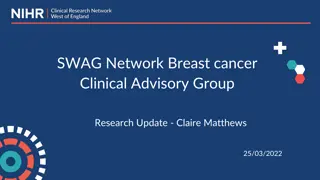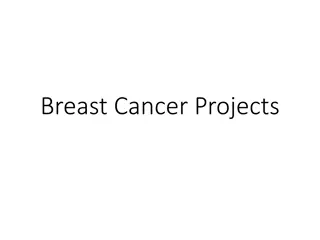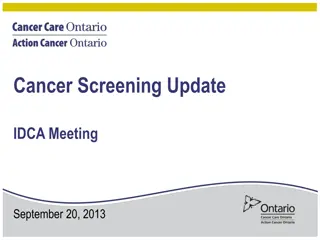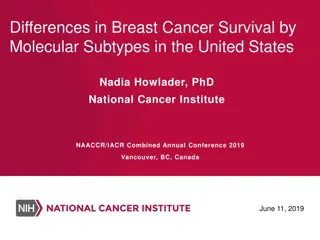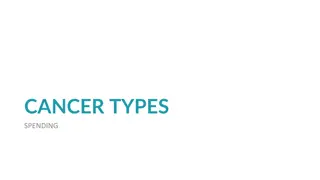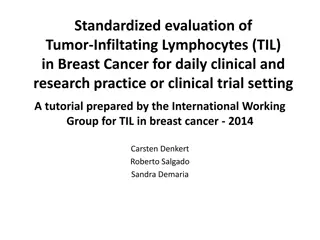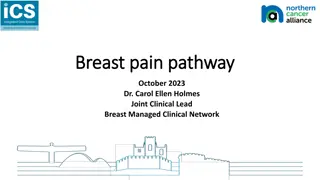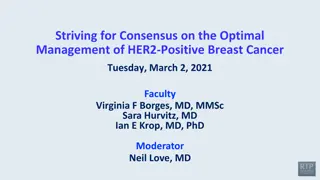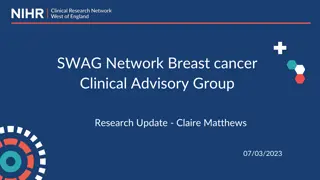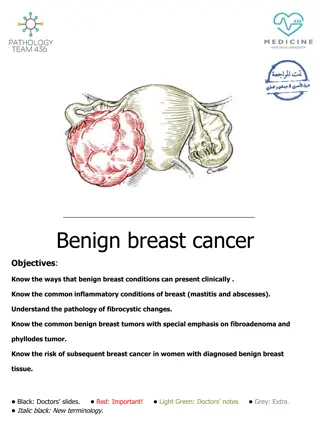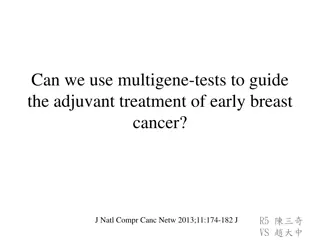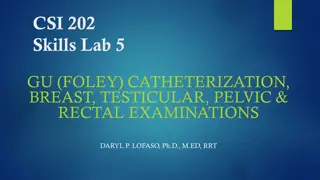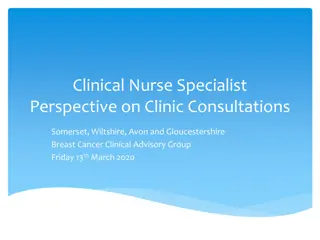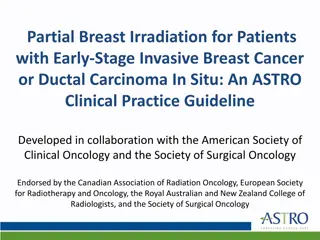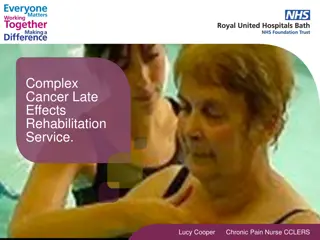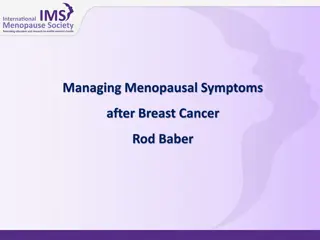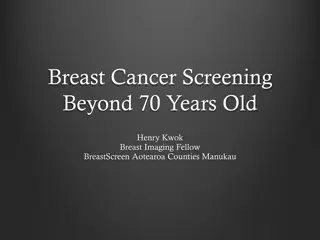Geographic Inequalities in Breast Cancer Care: Recommendations and Clinical Advice
National and local workforce planning, improved NHS structures, effective data collection, and service improvement are key recommendations for addressing geographical inequalities in breast cancer care. Clinical advice emphasizes the importance of collecting relevant data, optimal treatment planning, and access to specialized care for breast cancer patients.
- Breast Cancer Care
- Geographic Inequalities
- Healthcare Recommendations
- Clinical Advice
- Data Collection
Download Presentation

Please find below an Image/Link to download the presentation.
The content on the website is provided AS IS for your information and personal use only. It may not be sold, licensed, or shared on other websites without obtaining consent from the author. Download presentation by click this link. If you encounter any issues during the download, it is possible that the publisher has removed the file from their server.
E N D
Presentation Transcript
Inquiry into geographical inequalities in breast cancer
Key recommendations 1. National and local workforce planning is essential Health Education England and all Cancer Alliances should urgently ensure there are enough healthcare professionals to deliver high-quality and timely diagnosis, treatment and care to local women. 2. New NHS structures need to improve the consistency, transparency and accountability of cancer services NHS England should work with local NHS bodies to enable women with breast cancer to access the treatment and care they could benefit from, at a price the NHS can afford. This includes medicines, measures to preserve patients fertility, appropriate breast reconstruction services, and psychological support. 3. Effective collection and use of data will drive service improvement NHS England should work with local NHS bodies to collect data and use it to improve the services they provide. They should compare their performance to other areas and share ideas that have successfully improved breast cancer care in their area. Local healthcare providers should also use data about their populations to make sure they are offering the services that are needed in order to swiftly prevent, diagnose and treat breast cancer.
Clinical Advice to Cancer Alliances for the Provision of Breast Cancer Services Prepared by the Breast Cancer Clinical Expert Group August 2017 Commissioners can and should commission in reference to this document Acute trusts and others providing care should make sure all elements of the service described herein are provided
Key themes 1. Are relevant data collected and shared so that appropriate action can be taken? At diagnosis, the provision of the cancer outcomes and services dataset (COSD) is mandatory. All diagnoses of recurrent and/or metastatic breast cancer should be recorded . 2. Do all patients have optimal treatment planning? All patients with invasive breast cancer should have tumour ER and HER2 status assessed with results available by 2 weeks at the latest.
3. Are breast cancer patients offered the best possible treatment regardless of their age? 4. Are appropriate patients offered breast cancer treatment as a day case or on a 23 hour stay pathway? 5. Are patients with recurrent or metastatic breast cancer being discussed at a MDT meeting? 6. Do patients with recurrent or metastatic breast cancer have access to a clinical nurse specialist? Analysis of Cancer Patient Experience Survey data shows that the single most important factor associated with high patient scores is patients being given the name of a clinical nurse specialist in charge of their care.
7. Following treatment for breast cancer, are patients given lifestyle advice? 8. Following treatment for breast cancer, are patients considered for referral to genetics services? 9. Are appropriate patients offered adjuvant bisphosphonate therapy? Adjuvant bisphosphonate therapy with zoledronate or ibandronate should be offered to most postmenopausal women with early breast cancer to reduce the risk of bone recurrence and fractures, and improve breast cancer survival 10. Are appropriate patients offered Open Access Follow Up?



